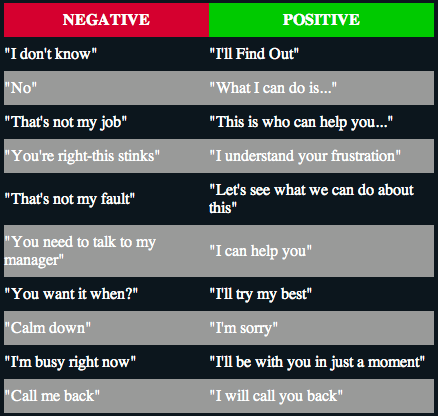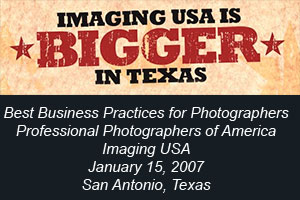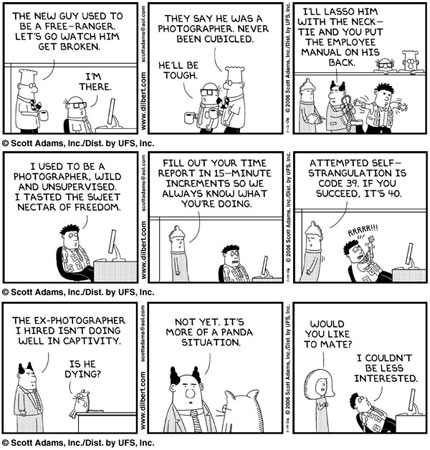You're My First
Do you remember your first time? I do. How about...do you remember looking quizically when someone said to you "you're my first"? Did you think twice about the honesty of the statement? Consider that their interaction with you was just a little too good. Their words an tone just a little to well said? Question, as Stephen Colbert puts it, the Truthiness of what was said? I do.
Now, don't get your dander up. In fact, get your mind out of where it is. I am not talking about the most intimate of intimates, I am talking about the first time a client said to you "you know, you're the first person who insisted on being paid for this photo assignment. Usually we get paid from photographers who want to shoot for us, and, if they're lucky, they get a photo credit in 6pt type, depending upon the whim of the designer, and if they like your name."
Sounds silly when put like that, doesn't it? Yet you hear variations on that "no, we own what you shoot, you're the first photographer to object to that." Or, "well, we don't pay expenses, it's $250 flat, and all your expenses have to come out of that total figure, you're the first person who has said they can't work within that budget."
Just because someone says that something they tell you is "standard", or no one has ever objected to a clause before, doesn't mean you have to accept it, or can't negotiate it. Everything is negotiable.
From "pay by" periods, to placement of photo credit, to receipt requirements, everything is negotiable. Period.
Please post your comments by clicking the link below. If you've got questions, please pose them in our Photo Business Forum Flickr Group Discussion Threads.

 I'm heading to Texas -- to the Professional Photographer's of America gathering known as ImagingUSA, where I will be presenting on, what else? Best Business Practices for Photographers. My Monday session, January 15, causes me to be an early riser that day, but I am excited about this presentation. To learn more, visit
I'm heading to Texas -- to the Professional Photographer's of America gathering known as ImagingUSA, where I will be presenting on, what else? Best Business Practices for Photographers. My Monday session, January 15, causes me to be an early riser that day, but I am excited about this presentation. To learn more, visit 
